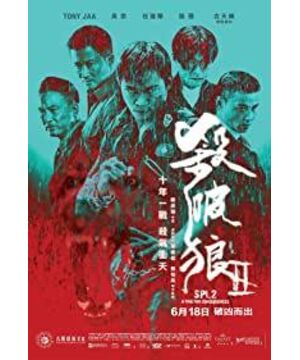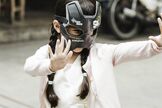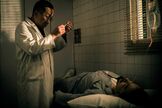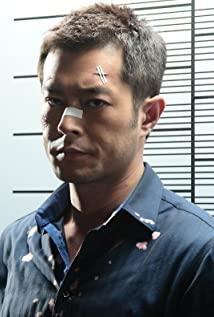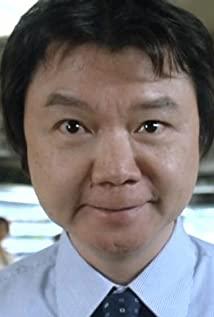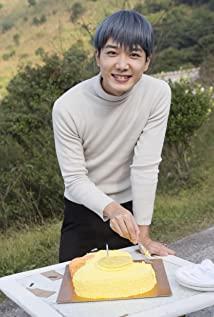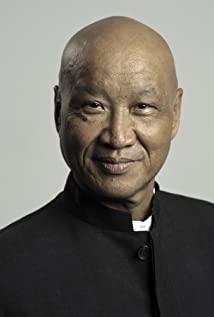But I think this is not the shortcoming of this movie, but the most powerful embodiment of the film's "straightforward and brilliant" style. There is no time wasting to make those twists and turns, and there are no extra shots and pictures to explain and explain the role information of the characters. As soon as the film begins and important characters appear, the main plot and the exciting battle begin immediately!
This simple, crude, straight-to-thematic narrative and shooting style complement and complement the exciting and swift fighting styles in the film! This also makes the film appear very compact and lively in terms of the advancement of the plot and the control of the rhythm, thereby bringing the audience a smooth and enjoyable movie-watching experience.
However, this direct-to-subject shooting method will face an important problem. That is the beginning of the movie. Many viewers may have just sat down in the dark and are not focused enough (maybe some people are still busy setting the phone ringtones to mute). During this time, viewers are very easy to miss and ignore the movie. The important plots and key information in the game will be inexplicable and incomprehensible when the fast-paced advancement of the plot leads to a flood of information.
The director of course also understands the shortcomings of this narrative technique, so he was very clever to arrange for Achai and Ajie to have a fierce and vigorous fight in prison shortly after the film began, and he immediately caught the audience’s attention. Attracted their attention to the film!
I remember that Director Zheng Baorui was also a member of Yinhe Impression, so it can be seen that he has a very good grasp of the dark and violent aesthetics that Yinhe Impression is good at.
Many of the scenes in the film are deliberately depressed and heavy. The depiction of violence and bloody scenes is as realistic as possible. The action designs of the three protagonists are also very suitable for the characters' personalities, the rhythm is well controlled, and the exciting and exciting fighting scenes are so exciting. .
One of the long shots of prison chaos is eye-catching.
The fight in the slaughterhouse was exciting. This period can be called a classic fight, and the bold choice of background music is indispensable: on the one hand, there is fist to the flesh, the knife to the blood, the other is the beautiful music, the rhythm is cheerful, and the violent audio-visual contrast brings me a bit of surprise and shock. In "Ace Agent", the scent of the bloody beautification to the extreme when the dignitaries of the world are collectively headshot.
The interspersed arrangement of the essays in this film is reasonable, without procrastination, and all the actors' acting skills are above the standard.
In terms of martial arts, Tony Jia's actions are heavy, Wu Jing's actions are simple, Zhang Jin's actions are sharp, three different styles of action between two powerful actors are the biggest attraction of the film.
But I think that exciting and exciting fights are nothing but the dazzling shell of an action movie, and the main theme that can be remembered and thought for a long time is the important core that can sustain a movie.
So what is the theme of the film?
Before discussing this issue, it is better to understand the meaning of the film title "Slaying Wolf".
What is "killing the wolf"?
Killing the wolf is a life style of Ziwei Doushu.
Killing, breaking, and wolf refer to the "seven kills", "breaking army", and "greedy wolf" three stars, which were first seen in the Book of Changes. In each life chart, there are three main stars of Seven Kills, Breaking Army, and Greedy Wolf. They will always look at each other. Seven kills, Breaking Army, and Three Stars of Greed Wolf are in the same palace, and they are called Killing Wolf.
People who have the destiny of Lupus wandering all their lives, ups and downs, but have the heroic physique of becoming famous in one fell swoop. The generals who fought on the battlefield in ancient times belonged to this kind of fate. (The above is from Du Niang)
Seven kills, the thief who disrupts the world. People who have the life style of Seven Killing Stars are naturally wise, brave, independent, and good at strategy, but their personality is evil, moody, and decisive. Once they make up their minds, they will never die.
Break the army and become the general of the world. People who have a star-breaking fate are generally more upright and resolute in personality, but are quick-tempered and impulsive, and do things their own way. Therefore, their popularity is relatively poor. Most of their lives have been rough and turbulent, and they have experienced setbacks and blows.
Greedy wolves are treacherous and treacherous people. A person with a star-great fate is smart and cunning, flexible and knows how to advance and retreat.
Once the Samsung converges, it will definitely break the original stable pattern and plunge the world into chaos.
In Kill 1, regardless of Ren Dahua (Seven Killing Stars), Donnie Yen (Broken Army Stars), or Hung Sampo (Greed Wolf Stars), they all acted in the direction set by their own fate. The three stars gathered, entangled in chaos, and finally ended in their own fate. Such a story that cannot be explained in accordance with the traditional stereotyped thinking of good and evil, gave the audience endless sighs and sighs.
Killing 2 retains such a fateful title, and also assigns fate to the main characters in the poster. In other words, the film will definitely have an inextricable relationship with "fatalism" .
From the role setting in the film and the posters announced by the filming party, it can be seen that in this film, Ajie played by Wu Jing is a typical army breaking star, and Mr. Hong, the behind-the-scenes boss played by Gu Tianle, is a seven-kill star, played by Zhang Jin. The prison director is a wolf star, and another important character, Tony Jia, was forcibly named a "wuqu star" by the film crew. From here, it can be seen that it is impossible for this film to arrange the plot's direction in strict accordance with the killing of the wolf like the killing 1.
The director or screenwriter seems to understand this very well, so he simply changed his mind. While weaving the story with the help of the characteristics of breaking the wolf’s fate, he continued to give the characters the courage to break through the fate of the film, so as to give the ultimate evil. The positive happy ending provides a reasonable explanation.
If killing 1 is to show the audience and strengthen the killing of the wolf, then killing 2 reflects the breakthrough and challenge of the killing of the wolf everywhere.
Shah, who is suffering from blood cancer, and his father, Achai, never gave up calling the phone that no one answered from the beginning to the end; (in the end Shah was successfully treated)
a big fight in the prison showed that Ajie wanted to fight that. A phone call was difficult, but no matter how difficult it was, even if it turned upside down, he did not give up; (finally he successfully dialed the phone)
The uncle played by Ren Dahua went to see Ajie in prison, and he told Ajie that he would take him with him. Go out together, no matter how difficult it is, go out step by step, even if you blow up the prison;
Later, the two were caught in the slaughterhouse, and Ren Dahua, who was seriously injured, had to get the key even if he crippled his palm. He told Ajie with extremely strong willpower: No matter how hard the road ahead is, no matter how fate is playing tricks, he must take it out. Hugh said that the sky cannot be controlled by others, and my fate is controlled by the sky" courage, step by step.
In the final frontal decisive battle, the two factions of good and evil are clearly distinguished, and in the end, the evil is not suppressed: the warden, played by Zhang Jin, fell from the building, and Mr. Hong, played by Gu Tianle, failed to change his heart...
All of the above are actually not killing the wolf. The ending that should be there.
Perhaps due to commercial considerations, it can be seen that the director did not give full play to the dark and violent aesthetics. The barrier-free communication between Sha and the mentally handicapped person who found the mobile phone in the film, and the use of mobile phone voice translation by Ajie and Achai The communication and other places are like sweet beans sent by the director to the audience, making the film emit a gentle and bright light under the bloody and cruel shell.
The end of the story: Ajie and Achai won, and the little girl was treated. With such an ideal ending, the director turned a story about fate into a story about life.
Although this slightly clichéd reunion ending makes the film a little regrettable in terms of drama and impact, the discussion on persistence in life and the courage to break through difficulties is still worthy of consideration and affirmation.
The pain of Ren Dahua's broken palm in the film is also the pain that humans must experience when rebelling against fate, but as long as they grit their teeth and take that step, their lives will be greatly different in the future.
View more about Kill Zone 2 reviews


